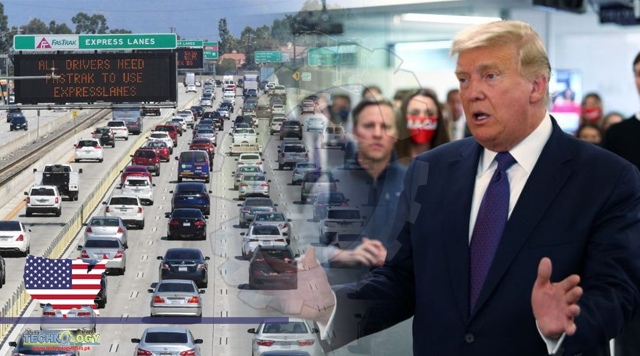The US formally exited the Paris Agreement on Wednesday (Nov 4), fulfilling a years-long promise by President Donald Trump to withdraw the world’s second-largest greenhouse gas emitter from the global pact to fight Paris climate change.

But the outcome of the tight US election contest will determine for how long. Mr Trump’s Democratic rival, Mr Joe Biden, has promised to rejoin the agreement if elected.
“The US withdrawal will leave a gap in our regime, and the global efforts to achieve the goals and ambitions of the Paris Agreement,” said Ms Patricia Espinosa, executive secretary of the UN Framework Convention on Climate Change (UNFCCC).
The United States still remains a party to the UNFCCC.
A group representing European and US investors with a collective US$30 trillion (S$41 trillion) in assets urged the US to quickly rejoin a global accord to tackle climate change.
The group, whose members include big investors such as New York-based BlackRock, the world’s largest asset manager, warned that the United States risked falling behind in the race to create a cleaner global economy by leaving the 2015 Paris Agreement.
“Recommitting to the Paris Agreement would provide an important policy signal, helping unlock additional flows of investor capital to support sustainable growth and job creation across key sectors of the US economy,” Ms Stephanie Pfeifer, chief executive of the Institutional Investors Group on Climate Change, said in an e-mail to Reuters.
The coalition of European and some US funds joined other investor groups in Asia, Australia and New Zealand in issuing a joint statement calling for a US return to the Paris pact.
The statement was timed for release on Wednesday morning, after US election polls were due to be closed, indicating how the withdrawal from the Paris deal remains a contested issue.
BlackRock did not immediately respond to a request for comment.
Ms Espinosa said the UNFCCC will be “ready to assist the US in any effort in order to rejoin the Paris Agreement.”
Mr Trump first announced his intention to withdraw the United States from the pact in June 2017, arguing it would undermine the US economy. But he was unable to formally do so until now because of the requirements of the deal.
The departure makes the United States the only country of 197 signatories to have withdrawn from the agreement, hashed out in 2015. Obama’s White House had pledged to cut US emissions 26-28 per cent by 2025 from 2005 levels under the deal.
Mr Biden is broadly expected to ramp up those goals if elected. He has promised to achieve net-zero emissions by 2050 under a sweeping $2 trillion plan to transform the economy.
Democratic presidential candidate Joe Biden said in the run-up to Tuesday’s presidential election that he would take the country back into the Paris accord.
The Rhodium Group said that in 2020, the United States will be at around 21 per cent below 2005 levels. It added that under a second Trump administration, it expects US emissions would increase by more than 30 per cent through 2035 from 2019 levels.
Most scientists believe the world must cut emissions sharply and quickly in order to avoid the most catastrophic effects of global warming. China, Japan, South Korea, and the European Union have recently ramped up their carbon cutting targets.
Mr Trump campaigned at the last election in 2016 on a promise to leave, saying the deal would hit the US economy. He was bound by United Nations rules to wait until Nov 4, 2019, to begin a year-long process required for a country to exit. No other country has left.
Ms Mindy Lubber, chief executive of sustainability advocacy group Ceres, which also signed the statement, said that withdrawing from Paris was a “monumental mistake”, but pointed to climate pledges by US states and companies as signs of progress.
Originally published at The straits times